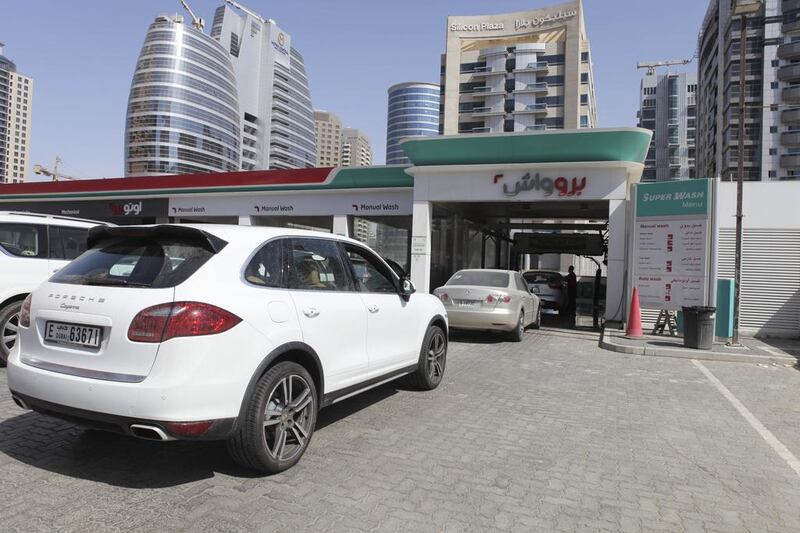Emirates National Oil Company (Enoc) is looking to expand to foreign markets to overcome its losses from fuel subsidies. It is already opening petrol stations in Saudi Arabia and is considering moving into Morocco either by acquiring existing companies or constructing its own stations.
The company is also looking to expand its non-fuel business across the country in a bid to boost revenue.
“We are subsidising the public with regards to fuel so we need to have other incomes. Our strategy is to expand in new markets, especially Saudi and maybe Kuwait and Morocco at the moment,” said Burhan Al Hashemi, the managing director of retail at Enoc.
According to the annual Middle East and North Africa Renewables Status Report, the UAE pays Dh15,321 per person each year to keep down the price of oil, gas and electricity for residents.
Federal legislation mandates that Enoc, which is owned by the Dubai Government, and its subsidiary Emirates Petroleum Products Company (Eppco), sell petrol at subsidised prices.
As a result, Enoc closed down its stations outside of Dubai a couple of years ago and is now looking overseas. It is in the final stages of opening its first Saudi petrol station in Dammam, with another under construction. Enoc is planning to open three more this year and aims to have 40 sites throughout Saudi Arabia within the next five years.
Domestically, it is looking at franchising its Zoom brand and encouraging customers to go into retail outlets at the stations.
“To reduce the losses, we are increasing sales in various aspects. We make margins on diesel and non-fuel products like rental of shops, Zoom and car wash. We are reasonably making good profit and have increased profitability by 40 per cent last year from non-fuel,” said Mr Al Hashemi.
Currently only 20 per cent of customers who stop at the stations buy non-fuel items. Enoc is looking to increase this conversion rate by 5 to 10 per cent this year.
“Today the problem is the sites are congested and people don’t have time to shop, so we have a few initiatives. Sometimes we go out to the forecourt and take their orders and we want to back it up with technology,” said Mr Al Hashemi.
Enoc is planning to open another two to three petrol stations in Dubai this year, including one at Dubai World Central, to help ease congestion. It is looking to partner up with more well-known brands, which has proven to be a strong strategy for Enoc, reporting a 40 per cent increase in coffee sales when it tied up with Starbucks last year.
Enoc is also opening more of its standalone Zoom convenience stores. It has seven supermarkets and is looking to open up to three more then expand to Abu Dhabi, Ajman and the other Northern Emirates. It will also open a few in Saudi Arabia.
“It is expected that the number of fuel station outlets won’t grow much in the UAE, only in areas that need petrol stations that currently don’t exist, but more expansion through stand-alone non-fuel focus will occur to compensate for limited sales attained from subsidised fuel,” said Fatemah Sherif, an analyst at Euromonitor International. “As a result it is expected that convenience stores [will] grow by 11 per cent in the number of outlets in 2014.”
The company is also introducing mobile payments at its petrol stations. Instead of paying by cash or credit card, customers can send an SMS to an Enoc number and have their bill deducted electronically. The service is still in the testing phase and will be available to the public by the middle of this year.
In mid-January, it introduced a Radio Frequency Identification-based retailing system for its commercial customers, among them Dubai Taxi. Using radio frequency, it transfers data from each registered vehicle and deducts payment at a later date so that drivers can fill up and go. It cuts waiting time down by two to three minutes per customer. It is hoped the service will be made available to the public eventually, although a time frame has not been set.
thamid@thenational.ae





